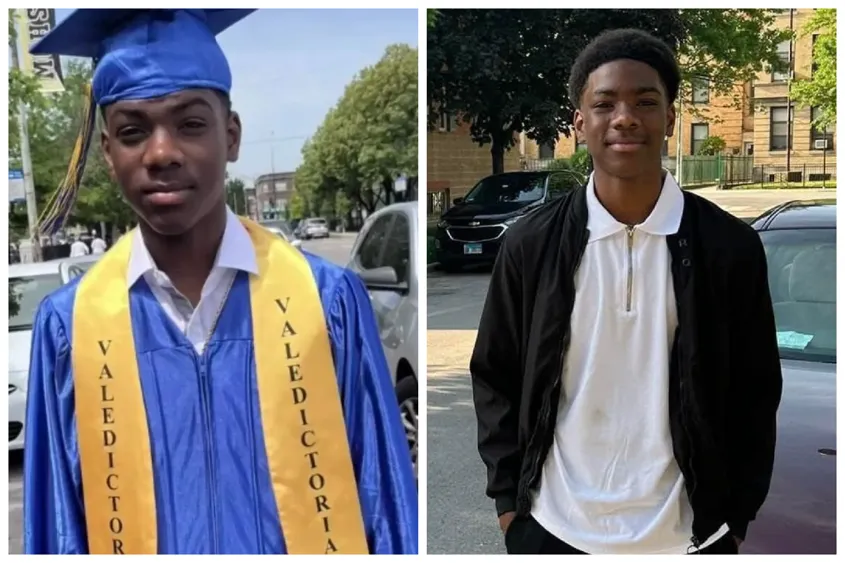Citizenship classes see surge in interest as President Trump cuts funding, ICE arrests continue to target immigrants
President Donald Trump's immigration crackdown is driving up the number of people applying for U.S. citizenship.
"In the first six months of 2025, we had at least double the amount of people reaching out by phone or email to me asking about joining our citizenship classes," said Glen Olson, program manager at the Immigration Institute of the Bay Area (IIBA).
IIBA offers naturalization services in English and Spanish in San Francisco, Redwood City, Napa and Petaluma. Only legal permanent residents are eligible to apply for naturalization.
Victoria Cecilia Perez became eligible to apply eight years ago. She didn't feel an urgency to become a citizen until this year.
"They can take away your residency, but you can't lose your citizenship," Perez said.
RELATED: USCIS makes new changes to US citizenship test
The $760 fee can be a deterrent for some.
"Sometimes, if you are raising a family, it's on the list of things to do, but there are other things that bump ahead of it very easily when money is tight," Olson said.
Rafael Belmonte Navarrete decided to apply for citizenship after he was pulled aside and fingerprinted by immigration agents upon his return from a trip to Mexico.
"They told me that if you don't want those kind of issues, just become a citizen, and we will just say 'Welcome home,'" Belmonte said.
The test, which consists of an English proficiency and a civics exam, just got harder.
MORE: SF celebrates National Citizenship Day, honors over 14,000 who've been naturalized in 12 years
On Oct. 20, United States Citizenship and Immigration Services (USCIS) increased the possible number of civics questions from 120 to 128 and doubled the number of questions asked from 10 to 20.
Applicants need to get at least 12 correct to pass the exam.
"They changed many of the questions, so they are more open-ended sounding. It requires more historical information and details about government. So, it's a more challenging test for people who are English as a Second Language students," Olson said.
The test can create anxiety for English learners. That's why IIBA helps them prepare by doing mock interviews in English with volunteers.
"My job is to give them confidence, really try to calm them down a bit and make sure they perform really well and know that they are capable of being a citizen," said Jared Ginn, who volunteered after seeing images of immigrants arrested by ICE agents.
MORE: Trump asks Supreme Court to uphold restrictions he wants to impose on birthright citizenship
Failing won't jeopardize an applicant's legal status, but experts say it's a good idea for immigrants to meet with a legal consultant before applying for naturalization.
The Department of Homeland Security has begun scrutinizing more closely the social media accounts of applicants and, in August, announced it was reinstating an old policy that lets USCIS officers interview neighbors, employers and coworkers to learn more about applicants.
"With the threat of neighborhood visits, they are saying that government officials would come to your neighborhood to assess if you have exercised good moral character, whatever that is. Any indication that you are not a good American is a potential threat," said Ellen Dumesnil, IIBA executive director.
The Trump administration recently canceled a $150,000 grant the Immigration Institute of the Bay Area was supposed to receive in October to provide legal services for naturalization applications.
Dumesnil says it's one of the many barriers the Trump administration is putting up to discourage legal residents from becoming citizens.
MORE: ICE to open call center to help track migrant children for removal
Last year, 818,500 people took the oath of U.S. citizenship. It's estimated that more than 8 million lawful permanent residents are eligible.
A few months ago, the Department of Homeland Security announced it would no longer hold large naturalization ceremonies in public places, such as the Paramount Theater in Oakland, which had regularly hosted them.
DHS said it was because the large ceremonies presented a security risk in sanctuary jurisdictions.
Naturalization ceremonies are now low-key affairs in immigration offices, with people now likely taking the oath the same day they pass the citizenship test.

